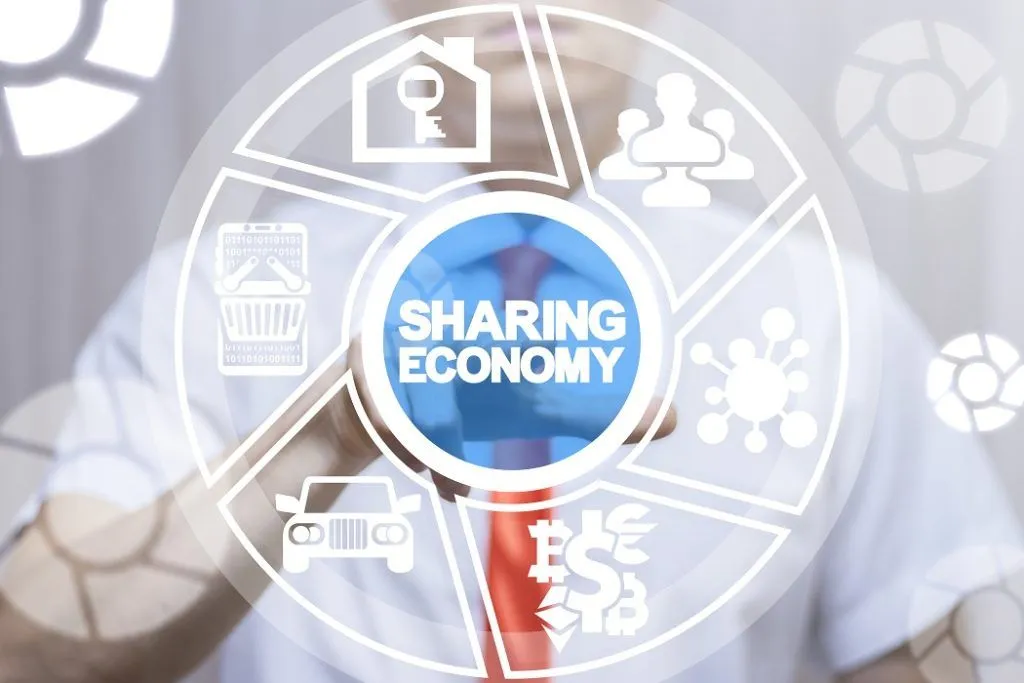North American personal finance has not remained isolated from sharing economy as it is gradually revolutionizing various sectors in different ways. This modern form of economy, based on the concept of sharing and the exchange of goods and services between individuals, is reforming saving, investing and financial planning in one’s life, as examples of collaborative consumption reveal the opportunities and risks of social sharing economy.
Cloaked in the theme of the sharing economy is the transition from ownership to access so that individuals can earn money off idle resources. Card and pay to park a car at home, let out a room, become a part-time driver, or lend tools, the sharing economy as making profit-making accessible to the masses.
The rise of peer-to-peer platforms

P2P platforms operate in various sectors and rapidly expand; they are crucial to the sharing economy affecting people’s financial lives. Platforms like Airbnb and Uber also affected the traditional industries but also gave people the tools to increase their earnings. Through subleasing, one can earn an income from an asset like an apartment or through provision of ride-sharing services from car one already owns.
And those are the platforms’ greatest traits for they are obvious: convenience is another name of every platform. Pretty much anybody can join and begin making money, making extra capital more attainable for the masses. This new economic freedom is priceless in moments of economic volatility on one’s stream of income.
Financial independence through collaboration
Interaction is an inherent feature of sharing economy, which helps many people become financially stable. Cooperation in utilizing the assets allows people to avoid the conditions typical for the field of finance. For instance, drivers can rent out their cars using applications such as Turo and pocket some cash to cater for the car loans and insurance charges.
This approach of uniting forces is not only beneficial for covering the costs, but also for the practice of a healthier living. They entail less ownership and more utilization of the available resources to match personal finance with environmentalism. Again the economic model proves to have a variety of advantages for the users, for instance they are able to cut expenses by avoiding the purchase of unnecessary items.
Investment opportunities in the sharing economy
The sharing economy also invariably offers special investment opportunities. Sites such as Fundrise and LendingClub give people with minimal capital involved an opportunity to invest in real estate and peer-to-peer lending. Such opportunities can provide a chance to have significantly higher profit for the investors compared to the banks’ deposits or bonds, for instance.
The opportunities provided by these investments are useful for investors, which enable them to distribute risks as well as receive periodic income. Thus, small investors can be involved in large value projects available previously to only the well-off class of people.
Challenges and considerations
Even though globalization has many advantages from a financial standpoint, the sharing economy has some issues that are the participants’ concern. Possible threats are mainly related to regulation because authorities cannot monitor this quickly growing market. In taxes, liability and rights of a worker, the current laws differ in every country, although there are changes frequently.
Furthermore, the system of P2P platforms does not always provide standard employment relations that protect employees in the state law. As a result, the workers are not afforded basic workplace amenities like healthcare, pension among other perks; they lack job security too.
Regulatory landscape
There are many layers and constantly changing rules, which define to what extent people can be involved in the sharing economy and what advantages they can receive. National, state and local government authorities are still struggling to match these new kinds of economic activities, which do not fall easily into defined legal categories.
Certain areas of the world have fully incorporated the sharing economy thus adopting legislations that govern the sharing economy transactions while safeguarding both the buyers and sellers. Some have even come up with very rigid measures that will slow down growth and only allow for limited development of these businesses.
Ensuring fairness and security
This is because fairness and security of the participants are critical to the longevity of the sharing economy. They have to ensure proper identification methods, share information on how they gather data and cooperate with their customers’ needs. This also covers the ability to present a great performance in the identification of the users and the providers, as well as put measures in place for handling fraud or misconduct.
Thus, there are things that participants must do to protect themselves from these circumstances. This involves ensuring that they comprehend the terms and conditions of the site, which they are willing to use and the rights and responsibilities that come with the selected sites’ use.
